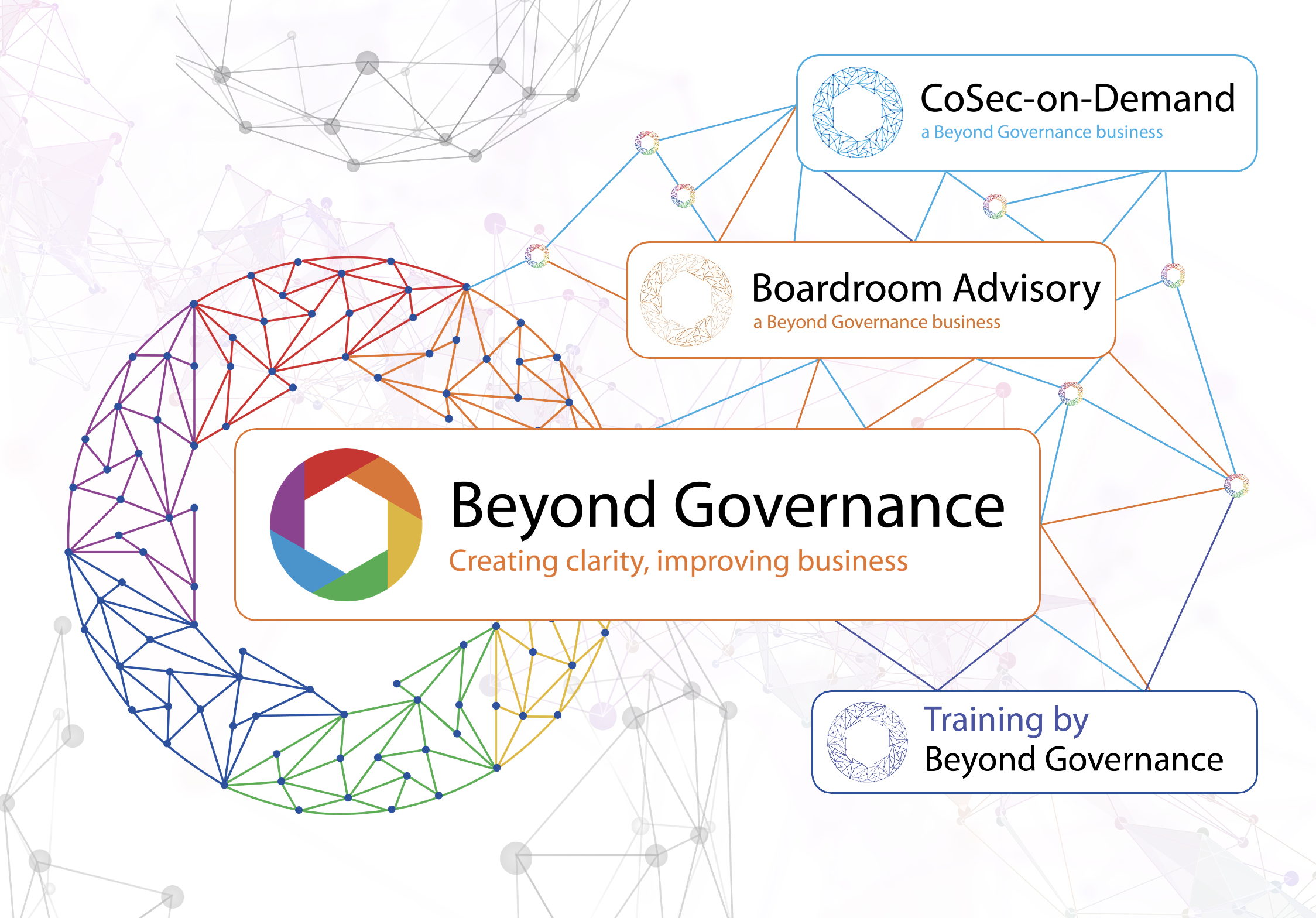

Beyond Governance Limited

London Borough of Islington, United Kingdom
November 2020
Legal activities
Service with Minor Environmental Footprint
United Kingdom
Beyond Governance is a multi award-winning full service consultancy. We collaborate with the c-suite, chairs, board, and investors to enhance stakeholder and shareholder confidence by unlocking value. Our three distinct service offerings, are dedicated to addressing the most critical issues and opportunities facing our clients. Our strength lies in creating value that transcends traditional boundaries and connects the silo’d elements within organisations. Our Boardroom Advisory team specialises in strategy, organisational design, operational efficiency, technology integration, transformation initiatives, digital strategies and analytics, corporate finance and mergers & acquisitions as well as sustainability. Our CoSec-on-demand group works with governance and secretariat teams to support them on a project basis, working with them on governance frameworks, subsidiary management, software audits, entity rationalisation as well as joining their risk registers to provide emergency cover, all done outside of IR35. Our Training teams works with institutions big and small to help narrow the gap between theory and day-to-day practice. Industry experts had expressed concerns regarding the future outlook of the governance profession, and we felt we could help address these needs.
Overall B Impact Score
Governance 19.5
Governance evaluates a company's overall mission, engagement around its social/environmental impact, ethics, and transparency. This section also evaluates the ability of a company to protect their mission and formally consider stakeholders in decision making through their corporate structure (e.g. benefit corporation) or corporate governing documents.
What is this? A company with an Impact Business Model is intentionally designed to create a specific positive outcome for one of its stakeholders - such as workers, community, environment, or customers.
Workers 34.7
Workers evaluates a company’s contributions to its employees’ financial security, health & safety, wellness, career development, and engagement & satisfaction. In addition, this section recognizes business models designed to benefit workers, such as companies that are at least 40% owned by non-executive employees and those that have workforce development programs to support individuals with barriers to employment.
Community 23.3
Community evaluates a company’s engagement with and impact on the communities in which it operates, hires from, and sources from. Topics include diversity, equity & inclusion, economic impact, civic engagement, charitable giving, and supply chain management. In addition, this section recognizes business models that are designed to address specific community-oriented problems, such as poverty alleviation through fair trade sourcing or distribution via microenterprises, producer cooperative models, locally focused economic development, and formal charitable giving commitments.
Environment 5.7
Environment evaluates a company’s overall environmental management practices as well as its impact on the air, climate, water, land, and biodiversity. This includes the direct impact of a company’s operations and, when applicable its supply chain and distribution channels. This section also recognizes companies with environmentally innovative production processes and those that sell products or services that have a positive environmental impact. Some examples might include products and services that create renewable energy, reduce consumption or waste, conserve land or wildlife, provide less toxic alternatives to the market, or educate people about environmental problems.
Customers 4.3
Customers evaluates a company’s stewardship of its customers through the quality of its products and services, ethical marketing, data privacy and security, and feedback channels. In addition, this section recognizes products or services that are designed to address a particular social problem for or through its customers, such as health or educational products, arts & media products, serving underserved customers/clients, and services that improve the social impact of other businesses or organizations.